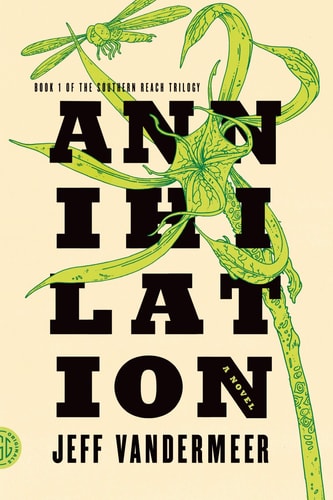Back to Collections
When Reality Becomes a Question Mark: Mind-Bending Science Fiction That Shatters Perception
A collection of twelve science fiction masterworks that challenge our understanding of reality, consciousness, and existence itself. From simulated worlds to fractured timelines, these books push the boundaries of what we believe to be real, leaving readers questioning the very nature of their own perceptions.
12 books
Updated 24/06/2025
What if everything you knew was wrong? What if reality itself was nothing more than an elaborate illusion, a simulation, or a dream within a dream? These questions have haunted philosophers for millennia, but science fiction writers have transformed them into visceral, unforgettable experiences that leave readers forever changed.
Philip K. Dick's "Ubik" remains the gold standard for reality-questioning fiction, where Joe Chip discovers that death might be just another state of consciousness and that reality decays like old milk. Dick's paranoid genius shines as characters struggle to determine what year it is, who's alive, and whether anything they experience is real. Similarly mind-bending, "The Three Stigmata of Palmer Eldritch" presents a future where colonists escape their harsh reality through a drug that may actually transport them to another dimension—or into the mind of something far more sinister.
Ursula K. Le Guin's "The Lathe of Heaven" takes a different approach, following George Orr, whose dreams literally reshape reality. Le Guin masterfully explores the ethical implications of such power while questioning whether any version of reality is more valid than another. This theme of mutable reality finds a contemporary echo in Blake Crouch's "Recursion," where memory becomes the key to reality itself, and false memories create alternate timelines that threaten to destroy existence.
China Miéville's "Embassytown" pushes linguistic boundaries, presenting aliens whose language is reality—they cannot lie because their words create truth. This conceptual breakthrough pairs brilliantly with Ted Chiang's "Stories of Your Life and Others," where the titular story (adapted as the film Arrival) explores how learning an alien language that experiences time non-linearly fundamentally alters human perception of reality.
Jeff VanderMeer's "Annihilation" creates a reality that actively resists comprehension, where an mysterious zone transforms everything within it according to unknowable rules. The biologist's journey into Area X becomes a descent into a reality that human minds aren't equipped to process. Christopher Priest's "The Inverted World" literally turns reality inside out, following inhabitants of a city that must constantly move to survive in a world where physical laws themselves are inverted.
Greg Egan's "Permutation City" delves deep into simulated consciousness, asking whether copied minds living in virtual worlds are any less real than their originals. The novel's exploration of digital immortality and subjective reality remains unmatched in its philosophical rigor. Robert Charles Wilson's "Mysterium" tears reality apart more violently, transplanting an entire town into an alternate history where America never existed, forcing residents to question not just where they are, but which version of themselves is real.
Claire North's "The First Fifteen Lives of Harry August" presents reality as a loop, where certain individuals live their lives over and over, retaining memories across iterations. The novel brilliantly explores how knowledge of the future shapes the present, and whether any timeline is more "real" than another. Finally, M. John Harrison's "Light" fractures reality across three timelines, weaving quantum physics, space opera, and contemporary thriller into a narrative that suggests reality itself might be nothing more than information seeking its most efficient configuration.
These twelve books don't just question reality—they dismantle it, rebuild it, and hand you the pieces to construct your own understanding. Whether you read them as warnings, philosophical experiments, or simply mind-expanding entertainment, one thing is certain: your perception of reality will never be quite the same.
Books in this collection
1 2
2 3
3 4
4 5
5 6
6 7
7 8
8 9
9 10
10 11
11 12
12

Ubik
Philip K. Dick
Buy on Amazon

The Three Stigmata Of Palmer Eldritch
Philip K. Dick
Buy on Amazon

The Lathe Of Heaven: A Novel
Ursula K. Le Guin
Buy on Amazon

Annihilation: A Novel (The Southern Reach Trilogy, 1)
Jeff VanderMeer
Buy on Amazon

Stories of Your Life and Others
Ted Chiang
Buy on Amazon

Embassytown
China Miéville
Buy on Amazon

The Inverted World
Christopher Priest
Buy on Amazon

Permutation City: A Novel
Greg Egan
Buy on Amazon

Recursion: A Novel
Blake Crouch
Buy on Amazon

Mysterium
Robert Charles Wilson
Buy on Amazon

Obras Completas De D. Esteban Echeverria, Volume 1... (Spanish Edition)
Esteban Echeverría
Buy on Amazon

Light
M. John Harrison
Buy on Amazon